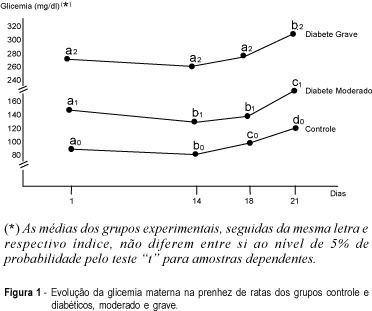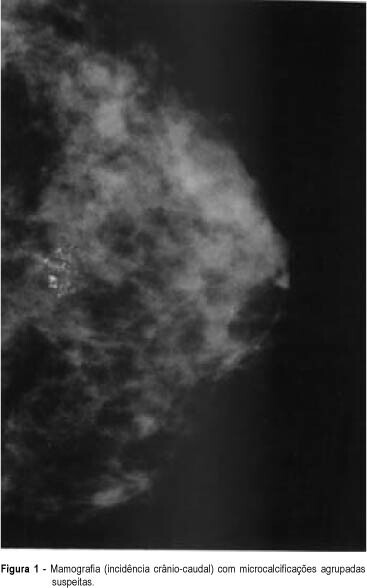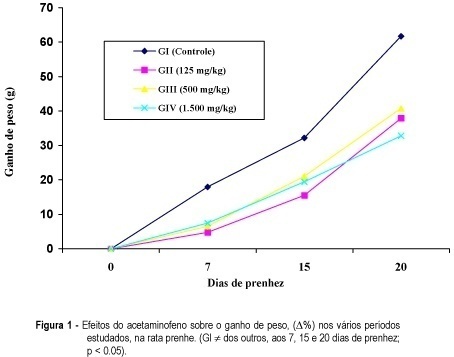Summary
Revista Brasileira de Ginecologia e Obstetrícia. 1999;21(2):99-104
DOI 10.1590/S0100-72031999000200007
Purpose: to study the actual conditions of medical assistance and types of delivery and factors contributing to their indication in Uberaba, MG. Method: the data of 4,294 puerperas who gave birth in the period from April 15, 1992 to April 14, 1993 in 7 maternities in Uberaba were studied. Results: it was seen that the Teaching Hospital had a greater participation in deliveries attending the younger population, probably the poorest and most unprepared regarding pregnancy. It was the only Hospital in which cesarean section rates were near those accepted by the who. Medical assistance in Uberaba was predominantly through Social Security (SUS), private health insurance and physicians representing a lower proportion. It was also verified that cesarean section frequency increased with age and type of medical assistance and the groups with private coverage presented a higher number of cesarean sections. Conclusion: it may be perhaps justified to consider the social factor as interfering with the indication of type of delivery.
Summary
Revista Brasileira de Ginecologia e Obstetrícia. 1999;21(2):91-98
DOI 10.1590/S0100-72031999000200006
Purpose: placental alterations were evaluated in macrosomatia and fetal growth retardation in pregnancy complicated by diabetes. Three groups of rats, used as experimental models, were studied: control, moderate and severe diabetes. Material and Method: cesarian sections were carried out on the 18th or 21st day of pregnancy. Maternal and fetal glycemia, newborn weight, placental weight, relationship between placental and fetal weight, DNA, RNA and protein contents and the glycogen deposited on placental membranes were analyzed. Results: there was a higher number of macrosomic newborns in the moderate diabetes group, whose placentas were rich in DNA with progressive decrease of glycogen in their membranes towards the end of pregnancy. There was a predominance of small for date newborns in the severe diabetes group. Their placentas showed a small DNA proportion, an increase in RNA synthesis and a tendency to higher protein production, with no change in the glycogen deposit. Conclusions: we conclude that fetal growth deviation in moderate and severe maternal diabetes between the 18th and 21st days of pregnancy is related to several placental alterations. In the moderate form there were only cellular hyperplasia and disappearance of placental glycogen at the end of pregnancy. In the severe diabetes group there was thickening of maternal-fetal membranes during this period. There was cellular hyperplasia and hypertrophy associated with the maintenance of glycogen reserves in the placental membranes.

Summary
Revista Brasileira de Ginecologia e Obstetrícia. 1999;21(2):85-90
DOI 10.1590/S0100-72031999000200005
Purpose: to present a profile of endometriosis, stages and results of treatment among the patients seen in our Service. Methods: the medical records of 155 patients with endometriosis treated during the period from 1991 to 1996 according to a preestablished protocol were examined. Results: mean patient age was 31 years, most patients were white, with regular menstrual cycles. The most frequently observed symptoms were dysmenorrhea, pelvic pain and infertility and were mild in most of the cases. The diagnostic methods utilized were laparoscopy or echography. There was agreement between echography and laparoscopy in 96% of cases. Laparotomy was required in 28% of cases for diagnostic elucidation and/or treatment. Endometrioma was detected in 37% of the cases and endometriosis was confirmed in only 74% of the biopsies from the lesion by anatomopathological examination. There was a significant improvement with clinical treatment regardless of the drug used, with improved symptoms in approximately 50% of the patients. Assisted fertilization was performed in 34 patients, consisting of in vitro fertilization (IVF) for 80% of them, with a 27% pregnancy/transfer rate. Conclusions: the diagnostic method of choice should be laparoscopy, although echography presented a high rate of agreement. Anatomopathological examination of the lesions should be used as an adjuvant method in the diagnosis since it is not confirmatory in all of the cases. Clinical treatment with assisted reproductive technologies is a good therapeutic option, especially with the use of IVF.
Summary
Revista Brasileira de Ginecologia e Obstetrícia. 1999;21(2):77-81
DOI 10.1590/S0100-72031999000200004
Purpose: to evaluate the frequency of urinary disorders and variation of the urodynamic parameters according to the time of post-menopause. Method: two hundred forty-two post-menopausal women with urinary complaints were studied at the Division of Gynecology, Escola Paulista de Medicina, UNIFESP. They were grouped according to the time of post-menopause: group A - up to 4 years; group B - 5 to 9 years and group C - more than 10 years. They were submitted to anamnesis, gynecological examination and urodynamic study. The frequency of urinary alterations and the variation of the urodynamic parameters were analyzed, such as voiding volume; flow time; maximum flow rate, average flow rate; residual urine; vesical capacity at the first desire to void; maximum bladder capacity; maximum urethral closure pressure and functional profile length, with full and empty bladder. The data were statistically analyzed. Results: the most common clinical diagnosis was stress urinary incontinence in the three groups, but the longer the time of post-menopause, the more frequently urinary urgency was observed. Regarding urodynamic diagnosis, 93.6%, 84.6% and 90.7% of the patients of the groups A, B and C, respectively, presented stress urinary incontinence, while 4.8%, 13.5% and 6.2% revealed detrusor instability. There was a decrease in the following urodynamic parameters, according to the time of post-menopause: flow time, maximum flow rate and vesical capacity at the first desire to void, and an increase of the residual urine. Conclusion: in spite of the high incidence of urinary symptoms such as urgency incontinence, stress urinary incontinence was the main urinary problem we have found in post-menopause.
Summary
Revista Brasileira de Ginecologia e Obstetrícia. 1999;21(2):69-76
DOI 10.1590/S0100-72031999000200003
Purpose: to evaluate core biopsy (CB) for the diagnosis of subclinical breast lesions, comparing with surgical biopsy previously identified by stereotaxic mammography. Methods: this is a cross-sectional study of 41 subclinical lesion cases over 35 years of age, between January 1995 and February 1997 at the Instituto de Ginecologia da Universidade Federal do Rio de Janeiro. The cases were classified mammographically as benign, probably benign, suspicious and malignant. Benign and probably benign lesions were studied together for statistical purposes. The histopathologic diagnosis of CB was classified as inadequate for diagnosis, absence of malignancy, suspicious and malignant. The histopathologic diagnosis of the surgical biopsy was classified as absence of malignancy, pre-malignant and malignant. The sensitivity, especificity and predictive values of CB were evaluated. Mammography likelihood ratio and core biopsy likelihood ratio were evaluated to predict breast cancer. Results: CB coincided with surgical biopsy in 86.2% of the 29 cases of absence of malignancy. All cases suspected by CB were malignant by surgical biopsy. All cases malignant by CB were also malignant by surgical biopsy. CB sensitivity and specificity were 36.4% and 100%, respectively. Positive predictive value was 100% and negative predictive value was 78.1%. In the group classified mammographically as malignant the likelihood ratio was 9.7; for suspicious lesions it was 1.3 and for probably benign lesions it was 0.1. Core biopsy likelihood ratio was infinite (¥) for suspicious and malignant lesions, 0.4 for cases classified as absence of malignancy and 1.4 for inadequate for diagnosis cases. Conclusions: after analysis of the results, with the use of the likelihood ratio, we conclude that CB report of absence of malignancy did not allow to rule out the diagnosis of malignancy. In these cases, we should correlate the result with mammography. If CB shows absence of malignancy and there is no correlation with mammography, the research must be continued. When the report of CB was suspicious, the probability of a breast carcinoma was very high. In these cases, we should perform a surgical biopsy to establish a definitive diagnosis, because an infiltrating carcinoma needs a different therapy when compared with carcinoma in situ and atypical hyperplasia. In the cases of histopathologic report of malignancy, the probability of breast cancer was high, since we did not observe any false positive CB. In these cases, CB allowed a quick diagnosis without the need of surgical biopsy.

Summary
Revista Brasileira de Ginecologia e Obstetrícia. 1999;21(2):105-108
DOI 10.1590/S0100-72031999000200008
Purpose: to evaluate the effects of acetaminophen on the pregnancy of female albino rats. Methods: forty pregnant rats were separated into four groups. All the animals received daily by gavage 1 ml of acetaminophen solution from the first day (day zero) until the 20th day of pregnancy: group I - only distilled water (control); groups II, III and IV, respectively, 125, 500 and 1,500 mg/kg body weight of acetaminophen dissolved in distilled water. The animals were weighed on days 0, 7, 15 and 20 of pregnancy. Results: our results showed that the rats that received the medication presented a reduction in weight when compared to the control group. The incidence of reabsorption of the embryos was 2.0, 3.5 and 7.0 times higher than in the control, in groups II, III and IV, respectively. Groups GII and GIV showed a clear reduction in the weight of the concepts. In GIV there was a 50% reduction in weight increase of fetuses and placentas when compared to the control, and 15.7% of external malformations were also found. Conclusions: the continuous use of acetaminophen should be avoided at doses higher than 70 mg/kg per during pregnancy.

Summary
Revista Brasileira de Ginecologia e Obstetrícia. 1999;21(1):13-17
DOI 10.1590/S0100-72031999000100003
Purpose: to evaluate if the nipple stimulation performed by primigravidae, at 40 weeks, modifies Bishop index. Method: 64 primigravidae, without clinical or obstetrical complications were studied, in two groups. One group, called nipple stimulation group (N.S.G.) had 29 pregnant women. The other, named control group (C.G.) included 35 pregnant women. The N.S.G. performed the nipple stimulation test, bilaterally, from left to right, for two minutes followed by five minutes of rest, during thirty minutes. The test was done three times a day up to 41 weeks of pregnancy or beginning of labor. Statistical analysis of the results was performed using Student's t test, with 5 % significance. Results: once nipple stimulation was completed in the N.S.G., it was compared with the C.G. considering time of delivery. The results showed no significant differences between the groups regarding cervix modification, according to the Bishop index. Conclusions: there were no differences of the Bishop index in primigravidae, with more than 40 weeks of pregnancy, who performed nipple stimulation test, when compared with pregnant women of the control group.
Summary
Revista Brasileira de Ginecologia e Obstetrícia. 1999;21(1):7-12
DOI 10.1590/S0100-72031999000100002
Purpose: to evaluate the accuracy of Doppler velocimetry in the diagnosis of fetal well-being. Methods: a total of 130 pregnant women assisted at the Ultrasound Unit of the Center for Integral Assistance of Women's Health, UNICAMP, between the 28th and 42nd gestational weeks was analyzed. The correlation between fetal umbilical and middle cerebral arteries, abdominal aorta, and the adverse perinatal results was established. The pregnant women selected for this study were submitted electively to cesarean sections, at the utmost four hours after the color Doppler examination. We considered as adverse perinatal results: Apgar score lower than seven at the 5th minute, neonatal intensive care unit hospitalization, intrauterine growth retardation, acute fetal distress, perinatal mortality, hypoglycemia, polycythemia, necrotizing enterocolitis, and cerebral hemorrhage. The indexes for the umbilical and middle cerebral arteries and the abdominal aorta were related, in each case, to the adverse perinatal results. Results: the systole/diastole umbilical artery ratio presented a higher sensitivity than the pulsatile and tolerance indexes. The Doppler study of the umbilical artery presented greater sensitivity than the middle cerebral artery and the abdominal aorta in detecting adverse perinatal results. Conclusion: the Doppler velocimetry of the umbilical and middle cerebral arteries presented good diagnostic capacity in evaluating fetal well-being, and a significant association with the adverse perinatal results.